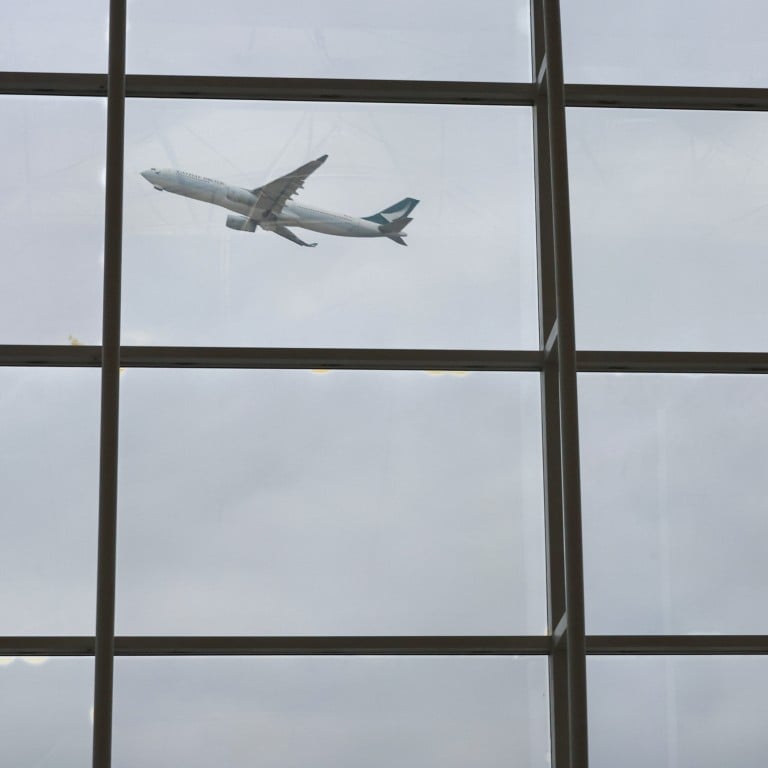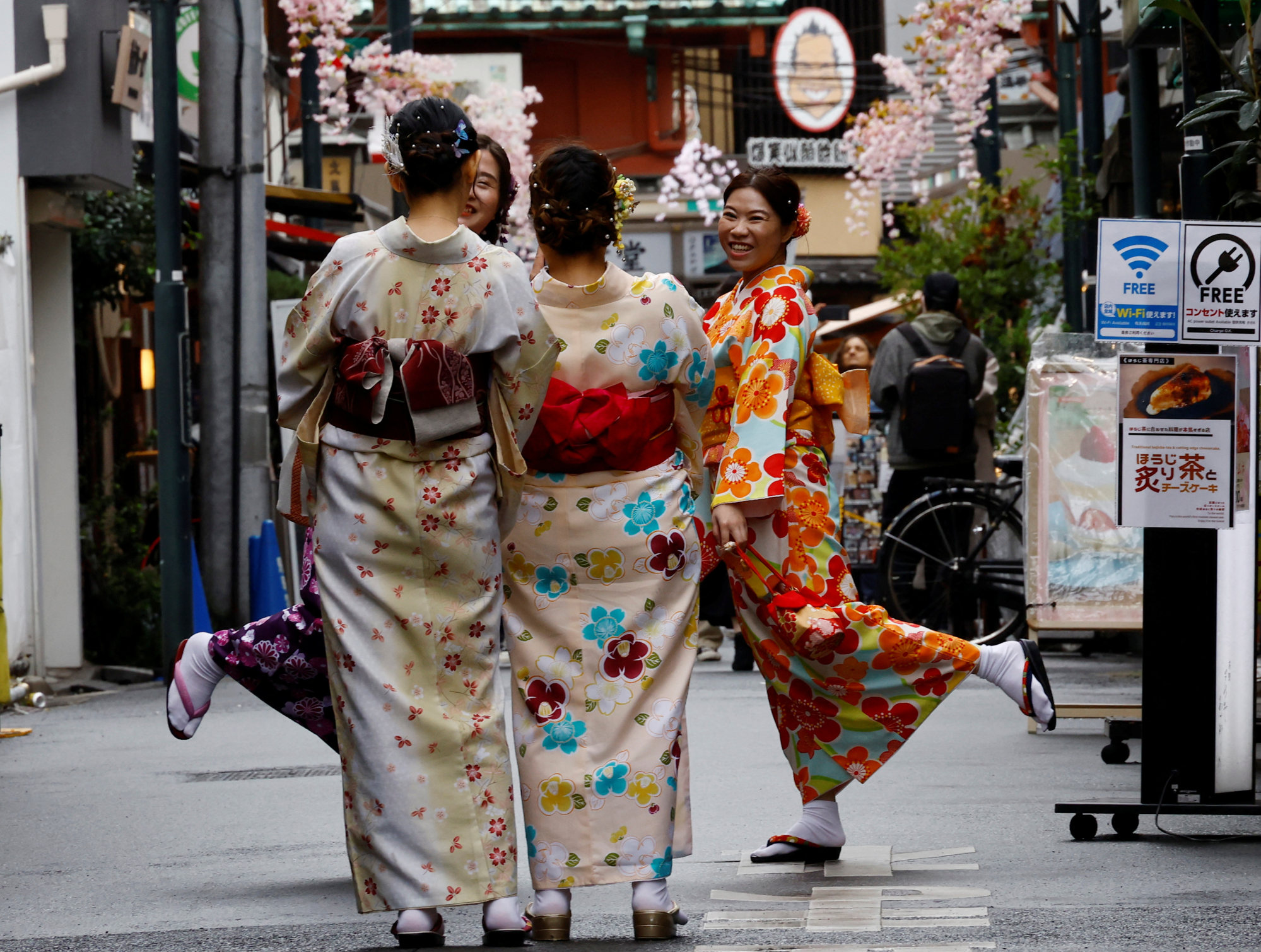
Savvy Hong Kong fliers say book early as air ticket prices surge by 15 to 40 per cent, unlikely to drop any time soon
- With demand outstripping supply of seats, ticket prices are considerably higher than before pandemic
- Shortage of airport workers blamed for preventing some airlines from resuming, expanding flights
“We were willing to pay, although it was much more expensive than before, because we had not travelled for quite a while,” the 59-year-old said.
At the same time, he booked a second trip to Tokyo over the Easter holiday to see the cherry blossoms, or sakura.
Being six months early, he paid HK$4,500 per ticket on budget carrier HK Express. A colleague who booked on the same airline to Tokyo two weeks before Easter paid twice as much.
Borders are open, so why aren’t mainlanders flying into Hong Kong?
Lau said that taught him an important lesson about post-pandemic travel – it pays to plan early.
With demand outstripping airline seats out of Hong Kong, air tickets are considerably higher than before the pandemic.
Travel agents say Hongkongers have responded by planning months in advance, making fewer trips than before, choosing destinations closer to the city and staying longer.
Some have delayed their travel plans to next year, hoping ticket prices will come down.

Hong Kong air passenger traffic in February was just over a third of pre-pandemic levels, with the airport handling 2.1 million travellers.
The city’s flagship airline Cathay and its budget carrier HK Express said on Thursday they were at 50 per cent of pre-pandemic passenger capacity last month, compared with regional rival Singapore Airlines Group at 79 per cent that month.
For travellers, the main consideration is the price of their ticket.
Online checks for a return economy-class ticket between Hong Kong and London in early May turned up prices of about HK$13,000, while a return economy-class ticket to New York cost HK$33,000.
Data from travel platform Expedia showed that the most searched destinations by Hong Kong residents last month were Tokyo, Taipei, Osaka, Bangkok and Seoul.
United Airlines reports strong demand for Hong Kong-San Francisco flights
Lily Agonoy, managing director of tour agency Jebsen Travel, said fares were 15 to 40 per cent more than before the pandemic, mainly because of supply and demand.
For example, a round-trip economy-class ticket to Tokyo this month cost about HK$5,100 compared with around HK$3,800 in 2019. A ticket next month to Montreal in Canada cost HK$27,000, compared with HK$17,000 in 2019, according to Jebsen.
The round-trip fare to Surabaya, a popular destination for Indonesian domestic workers in Hong Kong, is now HK$5,620 compared with HK$3,600 in 2019.
Agonoy said flights from Hong Kong to the United States, Britain and Australia were among the most expensive because of the high demand and insufficient flights and seats.
Last-minute deals were harder to clinch now. She said that before the pandemic, it was possible during off-peak periods to land a low-priced ticket closer to the date of travel when airlines tried to fill empty seats.

Now, however, ticket prices cost more closer to the date of travel.
Agonoy’s advice to travellers was to confirm their plans at least three to six months before their trip.
“Be decisive, book early and consider flexible options such as making a transit stop instead of insisting on non-stop flights,” she said.
She cautioned that short-staffed airlines were now charging 25 to 50 per cent more in cancellation fees to discourage passengers from making multiple changes to their plans.
Agonoy said she did not expect airfares to become more competitive until airlines were back to 100 per cent of their pre-pandemic capacity.
For Cathay, that is only expected to happen at the end of next year.
Labour shortages at airport threaten to ground Hong Kong’s aviation hub recovery
The Post reported in February that labour shortages at the airport had delayed several airlines from resuming or increasing flights to Hong Kong.
Australian carrier Qantas is among airlines that delayed resuming flights between Melbourne and Hong Kong to June because of staff shortages at its ground handling company and fee hikes.
Other airlines, such as Virgin Atlantic, cancelled plans to resume services giving travellers one less option on the London-Hong Kong route.
Low-cost carriers yet to return to Hong Kong include Jin Air, Jetstar Japan, Jeju Air, Mandarin Airlines, SpiceJet and IndiGo, said Herman Tse, senior aviation analyst at Ascend by Cirium.
But 35 airlines that did not operate during the pandemic were back as of March. he noted. American carrier United Airlines relaunched its non-stop services to San Francisco last month while British Airways doubled its flights between London and Hong Kong to 14 per week.
Hong Kong academy aims to be first to train both local and mainland pilots
Newcomer Greater Bay Airlines is offering promotions on routes including Taipei and Seoul, while HK Express has also offered promotions to popular destinations in Japan and Taiwan.
Senior lecturer Andrew Yuen Chi-lok of Chinese University’s Aviation Policy and Research Centre said the labour shortage across the industry was creating a “major bottleneck” for airlines to get back to pre-pandemic levels and meet rising demand.
“To speed up the recovery and maintain Hong Kong’s competitiveness – for example, in airfare pricing – there is an urgency for airlines and the government to consider different measures, including importing foreign workers, to relieve the shortage of labour,” he said.

